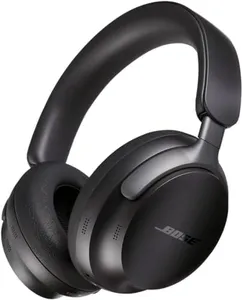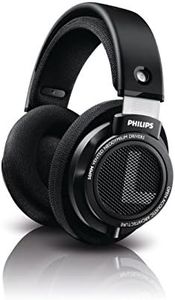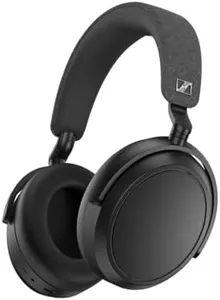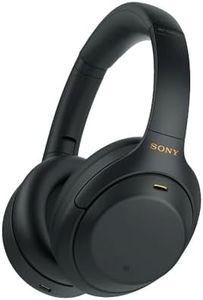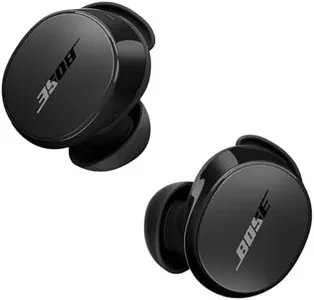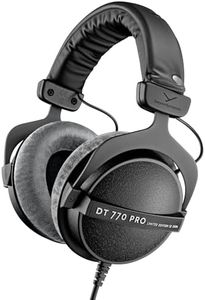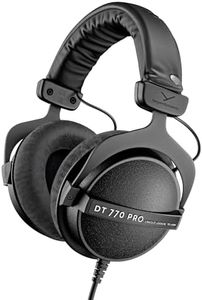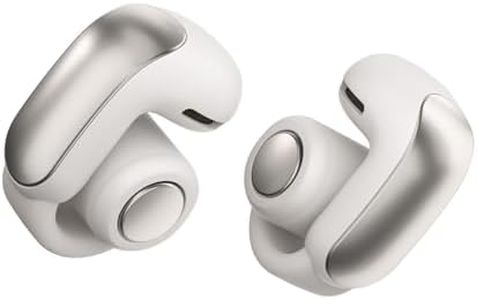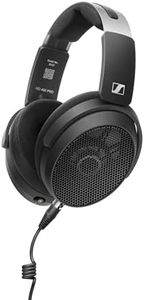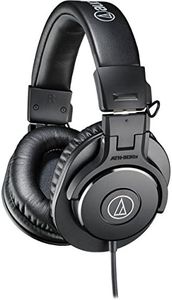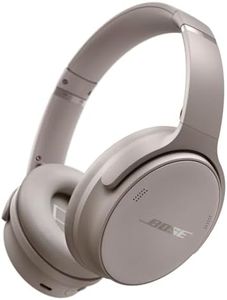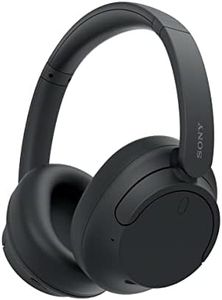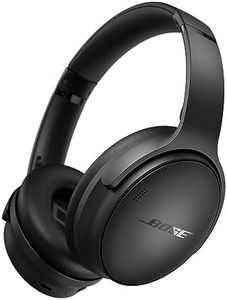We Use CookiesWe use cookies to enhance the security, performance,
functionality and for analytical and promotional activities. By continuing to browse this site you
are agreeing to our privacy policy
10 Best Headphones For Music
From leading brands and best sellers available on the web.By clicking on a link to a third party's website, log data is shared with that third party.
Buying Guide for the Best Headphones For Music
When shopping for headphones for music, it’s important to match your choice to how and where you plan to listen. Comfort, sound quality, and convenience all play major roles. Start by thinking about where you’ll use the headphones most—at home, in a studio, or while you’re out and about. Also, consider if you prefer being fully immersed in your music or if you need to stay aware of your surroundings. This helps you narrow down your options before you dive into the technical details.Type (Over-Ear, On-Ear, In-Ear)The type refers to the way the headphones fit on or in your ears. Over-ear headphones fully cover your ears, often offering the best comfort and immersion for long listening sessions at home. On-ear headphones sit on your ears and are lighter, but they might let in more outside noise. In-ear headphones fit inside the ear canal and are highly portable, making them ideal for travel or sports. Your choice should depend on how much comfort, portability, and noise isolation you need in your daily routine.
Sound Quality (Frequency Response, Drivers)Sound quality is influenced by the frequency response and the type and size of drivers in the headphones. Frequency response describes the range of sounds the headphones can produce—from bass to treble. Wider ranges typically provide fuller sound, but the quality of the drivers matters more. Larger or more advanced drivers can deliver clearer, richer audio. If you love deep bass, look for headphones known for enhanced low frequencies; if you value clarity, focus on a balanced or wide frequency response.
Wired vs. WirelessThis determines whether your headphones connect with a cable or via Bluetooth. Wired headphones usually deliver consistent audio quality and don’t need charging, making them popular for home or studio use. Wireless headphones offer freedom from cables, perfect for commuting or moving around. If you prioritize convenience and listening on the go, wireless might be best. If you want the best audio detail and reliability, wired is a solid choice.
Noise Isolation or Noise CancellingNoise isolation refers to physical materials blocking outside sounds, while noise cancelling uses electronic processing to reduce unwanted noise. If you listen in noisy environments like public transport or busy streets, noise cancelling or well-sealing noise isolating headphones are great. For quiet environments, these features are less important. Decide if outside noise regularly interrupts your listening and choose headphones with the appropriate feature.
Comfort and FitComfort depends on the padding, weight, and headband or earbud design. If you plan to wear headphones for long periods, look for soft ear pads and adjustable bands. For in-ear types, different ear tip sizes are important. Try to match the comfort level with the amount of time you expect to wear them, as uncomfortable headphones can limit your listening enjoyment.
Durability and Build QualityDurability is about how well the headphones are made and how long they'll last. Look for strong materials like metal or reinforced plastic, and check the quality of the cables or folding mechanisms if they have them. If you’re traveling often or using headphones every day, a more robust build is essential. If you only use them at home, you can prioritize comfort and sound quality.
Microphone and ControlsMany headphones come with built-in microphones and on-ear controls for calls and music playback. This is especially handy if you also want to use the headphones for phone calls or voice assistants. If music is your main focus, these might not matter, but they're helpful for multi-purpose use. Consider how often you'll need to take calls or adjust volume without pulling out your device.
